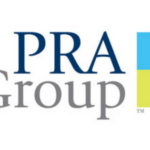I’m thrilled to announce that Bedard Law Group is the new sponsor for the Compliance Digest. Bedard Law Group, P.C. – Compliance Support – Defense Litigation – Nationwide Complaint Management – Turnkey Speech Analytics. And Our New BLG360 Program – Your Low Monthly Retainer Compliance Solution. Visit www.bedardlawgroup.com, email John H. Bedard, Jr., or call (678) 253-1871.

Every week, AccountsRecovery.net brings you the most important news in the industry. But, with compliance-related articles, context is king. That’s why the brightest and most knowledgable compliance experts are sought to offer their perspectives and insights into the most important news of the day. Read on to hear what the experts have to say this week.
Judge Grants MSJ in TCPA Case Over Collection Calls
A District Court judge in North Carolina has granted a defendant’s motion for summary judgment in a Telephone Consumer Protection Act case after it was sued for allegedly placing “several” hundred calls to the plaintiff’s cell phone in an effort to attempt to collect a debt, ruling that the technology used by the defendant did not meet the definition of an automatic telephone dialing system, but also that the plaintiff consented to receiving the calls in the first place. More details here.
WHAT THIS MEANS, FROM AYLIX JENSEN OF MOSS & BARNETT: In this case, the Federal Court in the Western District of North Carolina granted summary judgment in favor of the defendant, finding that the defendant’s technology was not an ATDS in light of the recent Facebook decision and that the plaintiff legally consented to the phone calls. The decision reveals that the court was concerned about some of the arguments asserted by the plaintiff relating to the defendant’s technology, writing that a party cannot “wait until discovery deadlines have passed and then seek an adverse inference instruction on th[e] issue at summary judgment.”
The decision also provides an informed analysis regarding revocation of consent. First, the court found that the plaintiff clearly provided consent to be contacted by providing his cell phone number in his account application. Next, the court held that “a clearer statement of revocation is required” than “send it to me in the mail.” This decision further solidifies that a plaintiff cannot use an ambiguous statement as evidence of revoking consent.
THE COMPLIANCE DIGEST IS SPONSORED BY:

NDCA Judge Grants MTD in FDCPA Case Over Creditor ID in Letter
A District Court judge in California has granted a defendant’s motion to dismiss after it was sued for allegedly violating the Fair Debt Collection Practices Act because it identified the creditor and the original creditor in a letter, but did not identify the current creditor to whom the debt was owed, with the judge ruling that she lacked subject-matter jurisdiction because the plaintiff only made “scant” allegations detailing how the plaintiff was allegedly deceived. More details here.
WHAT THIS MEANS, FROM MICHAEL KLUTHO OF BASSFORD REMELE: “Common Sense” still applies, even in collections. We need more Judges like the Judge who decided that common sense doomed the Plaintiff’s claim.
Even though the creditor was identified in the challenged letter, Plaintiff claimed alleged confusion because the letter also had the audacity to note that the Capital One creditor’s account involved the Plaintiff’s Kohl’s Credit Card. A branded card issued by creditor Capital One.
Perhaps the takeaway here is to reiterate that collections always seem to be conjure up the old adage “no good deed goes unpunished.” Telling the consumer not only the creditor’s name but also the “branded” name somehow “hurt” the consumer. Fortunately, a common sense Judge wasn’t buying what Plaintiff was selling. The case was summarily tossed. The court ruled as a matter of law that the Agency’s letter was easily understood to anyone applying good old common horse sense.
EDNY Judge Grants MTD in FDCPA Case Over Reporting Language in Letter
A District Court judge in New York has granted a defendant’s motion to dismiss after it was sued for allegedly violating the Fair Debt Collection Practices Act because it warned the plaintiff that an unpaid debt would be reported to the credit reporting agencies, ruling that the plaintiff’s interpretation of the letter to be “tortured” and beyond even what the least sophisticated consumer would think. More details here.
WHAT THIS MEANS, FROM JUNE COLEMAN OF MESSER STRICKLER: It is never a good thing for a consumer when the Court describes the consumer’s allegations using words like idiosyncratic, tortured or bizarre. There are nearly 1,500 cases that analyze the FDCPA and discuss idiosyncratic, tortured and bizarre consumer interpretations. However, most of these cases reference those words when discussing the least sophisticated consumer standard, and do not find that the consumer has constructed some tortured interpretation of a collection letter. It appears that more and more debt collectors are making defensive arguments that the consumer’s interpretation of the collection letter are idiosyncratic, tortured and bizarre interpretations. In the last year, it appears that there have been about 100 such cases. These arguments seem to be discussed more frequently in the Eastern District of New York and the District of New Jersey, although you see a number of these cases in the Districts of Illinois, Wisconsin, and Florida too. You see very few of them in the District Courts of the 10th, 9th, 8th, 6th, 4th, and 1st Circuits.
The most recent case is Teitelbaum v. I.C. System, Inc., out of Eastern District of New York, decided June 1, 2021, is a perfect example of a Plaintiff’s interpretation that has gone too far. In this case, the collection agency explained that the debt was scheduled to be reported in the creditor’s name and two sentences later, that the agency will not submit the account information to the credit reporting agency until the validation period ended. The consumer argued that he thought the letter stated that both the debt collector and the creditor would provide account information to the credit reporting agencies. The Court quickly reached the conclusion that a least sophisticated, but reasonable consumer who red the letter in its entirety could not read something into a statement that it does not say, while ignoring a related sentence in the same paragraph, two sentences later, that makes clear who will be reporting “the account information” to the credit reporting agencies.
Debt collectors commonly think of the least sophisticated consumer standard as a bar that is too low, and overlook that the standard includes a reasonableness element, and envisions that the least sophisticated consumer is deemed to be willing and able to read a collection letter in its entirety and with some care. (See Greco v. Trauner, Cohen & Thomas, L.L.P., 412 F.3d 360, 363 (2d Cir. 2005); see also Weinberg v. CKS Fin., LLC, No. 19-CV-2666, 2020 U.S. Dist. LEXIS 164064, 2020 WL 5369058, at *2 (E.D.N.Y. Sept. 8, 2020) (“[A] debt-collection letter should be read ‘as a whole’ to determine whether it is ‘reasonably susceptible to misinterpretation or likely to cause a debtor to misunderstand his rights.'”).) The least sophisticated consumer, moreover, is not a dimwit or a “dolt”—or, for that matter, a “Philadelphia lawyer.” (Ellis v. Solomon & Solomon, P.C., 591 F.3d 130, 135 (2d Cir. 2010).) Of course, it is not the consumer that has constructed a tortured interpretation, it is the attorney. As one judge noted: “Indeed, a lawyer in search of ambiguity is even more likely than a consumer in search of ambiguity to find fault with [an] entirely accurate and innocuous debt collection letter[.]” (Donaeva v. Client Servs., Inc., No. 18-CV-6595, 2019 U.S. Dist. LEXIS 116419, 2019 WL 3067108, at *4 (E.D.N.Y. July 12, 2019).) This is an important arrow in the defense quiver when examining a case based on a letter. However, it is important to recognize that many courts find these issues to be a question of fact – but those cases are probably close to the line. Courts seem willing to make the call about idiosyncratic, tortured and bizarre consumer interpretations when the consumer (and her attorney) have stepped far over the line, rather than allow the case to conclude by trial.
WDWI Judge Dismisses FDCPA Case for Lack of Standing
A District Court judge in Wisconsin has dismissed a Fair Debt Collection Practices Act case for lack of standing, following a ruling in a similar case that was issued recently by the Seventh Circuit Court of Appeals. More details here.
WHAT THIS MEANS, FROM MITCH WILLIAMSON OF BARRON & NEWBURGER: Am I the only one who looked at this decision and had the thought that if Mr. Fansler was so concerned about paying his debt and so confused by the letter Messerli sent him, why did’t he just call or write for clarification? Of course a response to that question has been offer by a well known Long Island law firm which I shall only identify as the BS law firm. “Plaintiff argues that when a least sophisticated consumer receives a collection letter which she does not understand … the consumer would end up, as here, not disputing the letter at all because she ‘is frightened of calling a collection agency where highly trained aggressive debt collectors answer calls.’ ” Pinyuk v. CBE Grp., 2019 U.S. Dist. LEXIS 71899 (E.D.N.Y. Apr. 29, 2019). That claim, made in several other cases, was rightfully ignored by the Court. Don’t know if Plaintiff’s counsel, also from eastern NY, raised it as well.
In sum, this case and its predecessor Markakos v. Medicredit, Inc., 2021 U.S. App. LEXIS 14339 (7th Cir. May 14, 2021) will hopefully start a trend that will spread to other circuits, acknowledging “litigants cannot manufacture standing merely by inflicting harm on themselves.” Kudos to the brilliant defense attorneys who brought this point home in the instant case.
Sixth Circuit Jumps on Standing Bandwagon, Rules ‘Bare Anxiety’ Not Enough to Sue Under FDCPA
Joining its neighbor in the Seventh Circuit, the Sixth Circuit Court of Appeals has ruled that confusion and anxiety are not sufficient grounds for a plaintiff to claim standing to sue in a Fair Debt Collection Practices Act case, affirming a lower court’s dismissal of a case, albeit on different grounds than what was articulated by the District Court. More details here.
WHAT THIS MEANS, FROM CAREN ENLOE OF SMITH DEBNAM: In Garland, the Sixth Circuit has picked up where it left off in Buchholz, a 2020 case in which the Court questioned whether a bare allegation of anxiety was sufficient to create a concrete injury in fact. The Court answers that question in Garland in the negative. The Court’s holding is good news for the industry and continues a positive trend of exploring what allegations are sufficient to create Article III standing for purposes of the FDCPA. In Garland, the consumer alleged that a letter from a law firm “confused” him because he was not sure whether an attorney was involved and “raised his anxiety.” The Court quickly dispensed with his “confusion” by stating that “[c]onfusion does not have a ‘close relationship to a harm that has traditionally been regarded as providing a basis for a lawsuit.” The Court then addressed the anxiety claim, concluding that a bare allegation of anxiety likewise does not create a concrete injury in fact. While the ARM industry should be celebrating another standing victory (and the positive trending case law on the issue), consumer advocates are likely pondering the effect that these decisions have on their ability to bring technical or de minimus violation cases and to what extent their consumer clients need to bare their souls to sufficiently allege harm. One thing is clear – both sides of the “v” will be carefully scrutinizing allegations of nontangible harm moving forward.
Bill Introduced in Senate To Amend TCPA; Seeks Prison Time For Knowing and Willful Violations
A bill has been introduced in the Senate that seeks to stiffen the penalties for violations of the Telephone Consumer Protection Act, including jail time for those who willfully or knowingly violate the statute while also doubling the penalty for those who are found to falsify their caller ID information. More details here.
WHAT THIS MEANS, FROM LESLIE BENDER OF CLARK HILL: With the Robocall Mitigation Database June 30 deadline quickly approaching, it is curious that the Senate would introduce Senate Bill 1913 (no copy available as of this writing) to increase fines and penalties under the Telephone Consumer Protection Act. In November, 2020, pursuant to the Pallone-Thune Telephone Robocall Abuse Criminal Enforcement and Deterrence Act (the TRACED Act), the FCC published a detailed strategy for “promoting the deployment of caller ID authentication technology, and combatting the practice of illegal caller ID spoofing.” See, 85 Fed.Reg. 222 At p. 73360 (11/17/20). Meanwhile a reliable database for verifying the “owners” of wireless numbers still has not emerged. Shouldn’t we see how/if the TRACED Act provisions work before enacting a law to bolt on to the TCPA?
The Robocall Mitigation Database evolved as part of the STIR/SHAKEN caller ID authentication framework pursuant to 47 CFR Section 64.6305(b). Under this initiative and by June 30, 2021, “all voice service providers must file certifications to [the FCC’s] Database providing detailed information regarding their implementation of … a robocall mitigation program.” The Database can be found here https://fccprod.servicenowservices.com/rmd?id=rmd_welcome and the FCC offers sixteen pages of detailed instructions on how to submit new certifications or make changes to existing ones.
While we all agree that robocalls are annoying and can be harmful to consumers duped by some of the phony and fraudulent callers, a law to increase the fines and penalties under the TCPA may not be the most helpful legislative route to mitigate robocalling. Practical guidance: consider asking your telecommunications vendor(s) if or how they comply with the caller ID authentication framework in STIR/SHAKEN. Stay tuned.
Baker’s Dozen of New Amicus Briefs Filed in Support of Hunstein Petition for Re-Hearing
If there was any doubt over the importance of the Hunstein case to the accounts receivable management industry, and to the camaraderie and support that companies in this industry have for one another, and that every lawyer in the country was working over the Memorial Day holiday weekend, look no further than the amicus briefs that were filed in the past few days supporting the defendant’s petition for an en banc re-hearing in the case. More details here.
WHAT THIS MEANS, FROM JOHN REDDING OF ALSTON BIRD: As noted in previous Compliance Digests, a flurry of amicus briefs were filed just before and immediately following the Memorial Day weekend, keeping many busy over the holiday. Arguments raised by the amici are numerous and varied, and include (i) the decision results in content based restrictions in violation of the First Amendment, (ii) negative impacts on the overall financial services industry are unwarranted, (iii) reliance on the parties’ agreed upon definition of “communication” defeats the purpose of the FDCPA, and (iv) the use of third party mail vendors is recognized as appropriate by the CFPB and FTC. The Hunstein decision continues to garner national attention, unifying the many factions of the financial services industry. And now we wait to see whether the 11th Circuit will accept the matter for rehearing en banc and, if so, the ultimate outcome of doing so.
Judge Grants MSJ For Defendant in FCRA Case Over Disputed Debts
In a case that was defended by Ethan Ostroff and the team at Troutman Pepper, a District Court judge in Georgia has granted a defendant’s motion for summary judgment in a Fair Credit Reporting Act case in one of those unfortunate situations where an individual gets hung up while waiting for insurance payments to cover a debt. More details here.
WHAT THIS MEANS, FROM COOPER WALKER OF MALONE FROST MARTIN: The Southern District of Georgia has granted summary judgment to a furnisher defendant under an FCRA for two notable reasons. First, the Court found that Plaintiff’s claim “is based on a disputed legal question instead of a factual one, which cannot be the basis of an FCRA claim.” Specifically, Plaintiff was arguing that insurance was responsible for paying the debt in question. Second, the Court found that Plaintiff “set forth no evidence of damages or causation.” The Court found that despite a Northern District of Georgia case holding that a Plaintiff need only provide testimony of emotional distress, “other courts in the Eleventh Circuit — including this one — “have come out the other way and required more than an FCRA plaintiff’s own testimony to support a claim for emotional distress damages.” As FCRA cases continue to rise, make sure you are looking to see if either of these complete defenses can be utilized.
I’m thrilled to announce that Bedard Law Group is the new sponsor for the Compliance Digest. Bedard Law Group, P.C. – Compliance Support – Defense Litigation – Nationwide Complaint Management – Turnkey Speech Analytics. And Our New BLG360 Program – Your Low Monthly Retainer Compliance Solution. Visit www.bedardlawgroup.com, email John H. Bedard, Jr., or call (678) 253-1871.

















